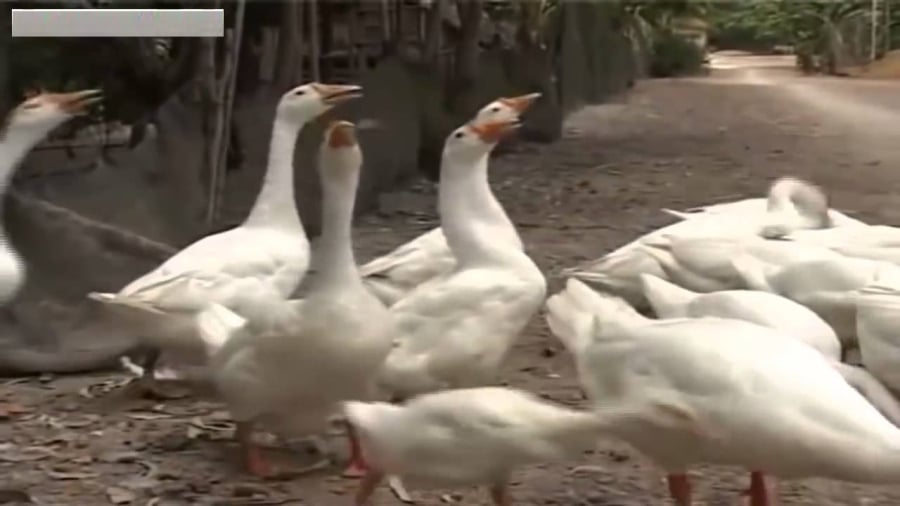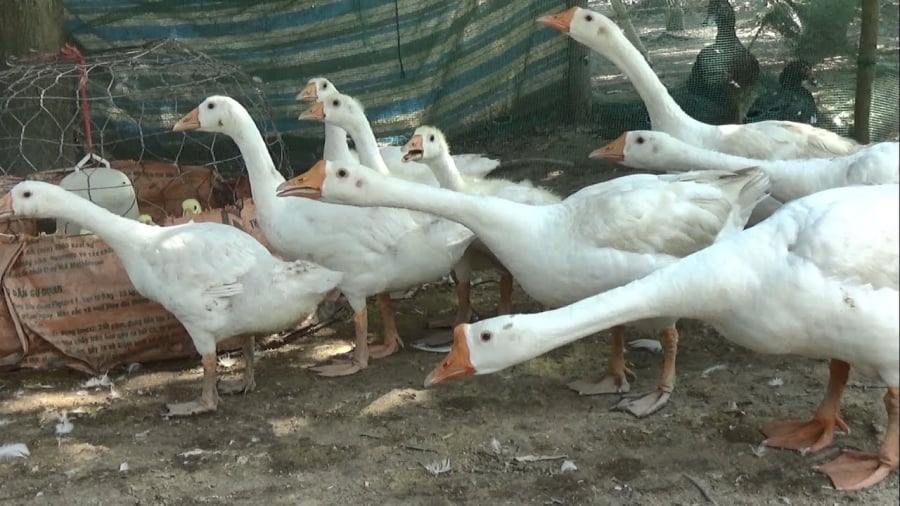Nowadays, it is difficult to find a goose if you want to buy one at the market. So why are geese considered treasures, while chickens and ducks are more common in the countryside?
1. Geese are treasures, but why are they less commonly raised?
After conducting some research, I discovered that geese indeed have higher value compared to chickens and ducks. Geese are truly a treasure trove.

Geese are highly valuable poultry.
First of all, geese eggs are highly nutritious and are beloved by consumers. Their price is often much higher than chicken and duck eggs, and some geese eggs can be sold at very high prices each. This demonstrates their market value.
Secondly, goose meat is famous for its delicious taste. It is tender, flavorful, and rich in nutrients, making it much more expensive than chicken and duck meat. On average, goose meat is much pricier than chicken and duck meat.
Lastly, goose feathers are also a good source of income. Their soft and warm texture makes them ideal for high-end products like down jackets and duvets. For some large-scale goose farmers, the income from goose feathers is quite substantial.
2. Why are geese less commonly raised in rural areas despite their high value?
Let’s analyze some reasons that make farmers hesitant to raise geese.
Although geese are high-value, farmers are not enthusiastic about raising them. The main reasons for this are as follows:
① Expensive and hard to find goose breeds
Compared to chickens and ducks, goose breeds are much more expensive. Additionally, the supply of goose breeds is unstable, and they cannot be purchased at any time. This increases the costs and risks for farmers who raise geese.
② Higher technological requirements and difficulties
The technological requirements for raising geese are higher than those for chickens and ducks. They require more space, better food, and have stricter environmental requirements.
This means that farmers need to invest more time and effort into raising geese, which is a major challenge for busy farmers. Without strong technology, the risks are extremely high. Most farmers are not willing to take such risks, so raising chickens and ducks would be more cost-effective.
③ Difficulties in selling
Due to the relatively high price of geese, ordinary consumers are often hesitant to purchase them. As a result, the demand for goose meat and eggs in the market is relatively low.
This makes it difficult for farmers to sell their goose products, leading to increased risks and costs in raising them. Therefore, there are fewer sellers of geese at the market because of this, meaning fewer buyers.
3. Where do raised geese go?
In rural areas, although there are fewer goose farmers, some people still raise them. Especially professional large-scale breeders, where do their geese go?

In reality, these large-scale goose farmers have established fixed sales channels. As I understand it, many raised geese are sold to restaurants, eateries, hotels, and other commercial establishments.
These organizations have become major consumers of geese because they require a large quantity of goose meat to meet the demands of their customers. For example, some specialized establishments that serve roasted or smoked geese have a very high demand.
Farmers usually establish cooperative relationships with these organizations and sell their raised geese directly to them, thus solving the issue of sales.
Now you understand! Geese, although valuable, are not widely raised by farmers due to the high cost of goose breeds, the higher technological requirements of raising them, and the low revenue. For farmers who want to enter the goose farming industry, they need to consider these factors carefully and develop a reasonable farming plan to succeed in this field.
In general, geese are highly valuable poultry, so the prospect of goose farming is extensive.
































